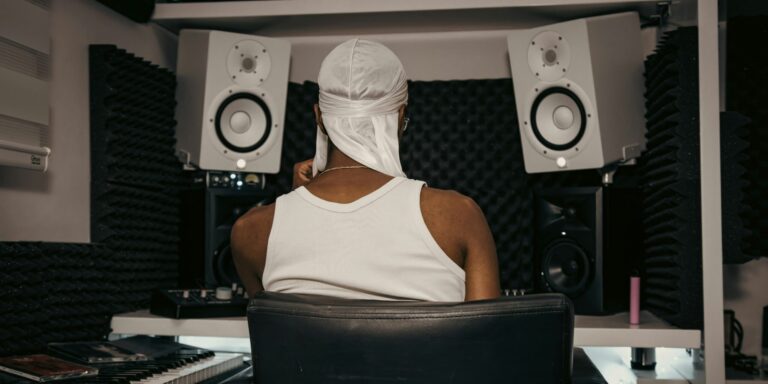In 2025, artificial intelligence (AI) has firmly established itself as a transformative force in the music industry. From composition and songwriting to mixing and mastering, AI-driven tools are reshaping how music is created. These technologies have the potential to enhance creativity, streamline production, and offer musicians new ways to experiment. However, they also raise significant concerns about the role of human musicianship in a world that is increasingly automated. As AI technology continues to improve, the industry must consider how to integrate these tools while preserving the soul and authenticity of the creative process.
AI-powered music tools like OpenAI’s MuseNet and Google’s Magenta project have made it possible for musicians to generate melodies, harmonies, and even lyrics using advanced machine learning algorithms. These tools offer composers and producers the ability to quickly experiment with different musical ideas, generate new compositions, and break free from creative blocks. For many musicians, AI represents a valuable tool for enhancing their work. By using AI to generate music, artists can rapidly explore new musical territories and uncover ideas that might not have occurred to them otherwise. The speed and efficiency of AI tools allow musicians to spend more time on refining their creations rather than getting bogged down in the early stages of composition.
For example, MuseNet can generate a wide variety of musical genres, from classical to contemporary, allowing artists to experiment with different styles and influences. Magenta, on the other hand, helps musicians generate new melodies, rhythms, and even complete songs based on user input. For musicians working in genres like pop, electronic, or hip-hop, AI can serve as an invaluable collaborator, generating new loops, beats, and melodies that can be built upon to create full compositions.
However, despite the creative potential of AI, there are concerns that these tools could ultimately undermine human musicianship, particularly in genres where formulaic structures and melodies are already prevalent. Pop and electronic music, for example, often follow predictable patterns, and AI can easily replicate these structures by analyzing vast amounts of existing data. If AI-generated music becomes the norm, it could lead to a future where much of the music we hear is created by algorithms, raising fears that music could become formulaic, predictable, and devoid of emotional depth.
One of the main arguments against the widespread use of AI in music production is the idea that it could devalue human-created art. Music, for many, is more than just a series of notes and rhythms; it’s an expression of personal experience, emotion, and connection. Artists pour their stories, struggles, and unique perspectives into their work, which resonates with audiences on a deeply human level. AI, however, lacks the ability to truly understand or replicate these emotional experiences. While it can mimic patterns and structures, it cannot create music that is infused with the personal meaning, lived experience, or cultural context that often defines great art.
In 2025, the question is not whether AI will play a role in music production—it already does. The challenge lies in how the industry can strike a balance between using AI as a tool to complement human creativity, rather than replacing it altogether. AI can enhance the music-making process by offering new ideas, improving efficiency, and assisting with technical aspects of production. However, it is important that musicians continue to maintain creative control, ensuring that their work remains authentic and emotionally resonant. AI should serve as a supportive partner, helping to explore possibilities and expand creative boundaries, rather than as a substitute for human artistry.
The key to integrating AI into music production is understanding that it is just one tool among many. Musicians have long used technology to enhance their work, from synthesizers to digital audio workstations. AI can be seen as an extension of this tradition, providing artists with new ways to explore sound and composition. By approaching AI as a tool for innovation rather than a replacement for human input, musicians can continue to create music that reflects their individuality and creative vision, while also embracing the advantages of technology.
As AI technology continues to evolve, it is crucial for the music industry to ensure that it does not overshadow the human element that makes music truly powerful. The role of the artist, the connection between performer and audience, and the emotional depth of the music must remain at the forefront of the creative process. AI should be seen as a means to support and amplify these aspects of music, rather than reduce it to a series of algorithmic outputs.
In conclusion, while AI has the potential to revolutionize music production by offering new ways to create, experiment, and refine music, it is essential that it does not replace the human elements that make music meaningful. In 2025, the music industry must find a way to strike a balance, allowing AI to complement and enhance human creativity, rather than overshadowing it. As AI tools continue to evolve, the key will be using them to support the artistic process, ensuring that music remains a deeply personal and emotional form of expression.


